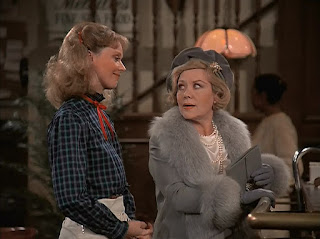Kyle Burress starts us off.
Are you glad that you didn't have to deal with all of the social media and such that goes on in today's society during your involvement with Mash, Cheers, Jefferson's and Frasier, amongst others? Do you think that would have changed things dramatically in the way things were written or how the cast and crew were dealt with?
If there was social media in those days, here’s how I think it would play out.
THE JEFFERSONS. The show would get buried because two Jewish guys wrote an episode.
MASH. Can you imagine the shitstorm when they killed Henry Blake? The producers would have gotten death threats.
CHEERS. I think social media would have helped us. There would be more buzz, more word-of-mouth. We wouldn’t be such an underground hit but ratings flop.
FRASIER. To some degree there was social media. Not to today’s extent, but there were chat rooms and fan groups that discussed the episodes. I would say, in general, that FRASIER was well received across the board.
The shows might have been written a little differently based on the country’s sensibility, not necessarily pressure from social media. How different? I have no way to calculate that or even speculate.
From jcs:
In your very entertaining podcast episodes 243 and 244 warmup luminary Bob Perlow voices his annoyance about some sitcom actors and producers being unwilling to invest just five minutes to talk to their audience before the taping. Perlow reasons that apart from showing a lack of appreciation, an opportunity to increase the show's fan base was wasted.
Did you experience similar situations in your career where you felt that not enough effort had been made to reach or to accommodate an audience?
I only did warm-up on one show (CHEERS) so Bob had way more experience with this than me.
But I will say this: Some actors are really concentrating on their performance — that’s their process — and they don’t want to disturb that by kibitzing with the audience. As a director, I want my actors to be as comfortable and ready as possible and if chatting with the crowd would get in the way, then I’m all for the actor skipping it.
Might the audience embrace them and the show more had they interacted? Probably. It’s definitely to their benefit. But the performance is the important thing.
blogward asks:
I was just reading about Glynis Johns, the beautiful Welsh actress who is now, at 98, the oldest Best Actress Oscar-winner alive (with Olivia De H gone). I never saw the episode of Cheers with her as Diane's mother, but I wonder if you had anything to share? Thx.
That was the episode we first tried to get Lucy.
Ms. Johns was fabulous. The ultimate pro. Knew her lines, was kind to everyone on the crew, not at all a diva. I never got up the nerve to ask her to sing “Send in the Clowns.” Sondheim wrote it specifically for her.
If you haven’t seen the episode, I very much recommend it. It was from season one, was called “Someone Single, Someone Blue” and was written by the late David Angell.
And finally, from Cedricstudio:
I recently got sick and had a froggy voice for almost two whole weeks. Which got me wondering, when an actor gets sick (loses their voice, for example) is it ever just written into the show? In season 11 episode of MASH ("Say No More") the B story is that Margaret's hero is visiting camp and she desperately wants to meet him, but she gets laryngitis and has to enlist Charles' help. I was re-watching it and noticed that she can't talk for practically the entire episode. I don't think I've ever seen the "character loses their voice" plot device used on a TV show before so it got me wondering: Was this something the writers came up with, or did Loretta Swit actually lose her voice forcing the writers to work it into the episode?
Actors getting sick used to be considered such a big crisis. Now, in the middle of a pandemic, having laryngitis for three days doesn’t seem that big a deal.
If we can work it in organically then we would. But especially on a single-camera show like MASH that’s shot out of order, we might just re-arrange the schedule to give the actor a few days off to recover and film his scenes later.
A bigger problem is explaining away why a character suddenly has a broken arm or cast on their wrist that’s not coming off for two months. Suddenly you have to dream up something to justify it. Glad we never did a period drama. Explaining a wrist cast in the Middle Ages might’ve taken some doing.
from By Ken Levine

Comments
Post a Comment